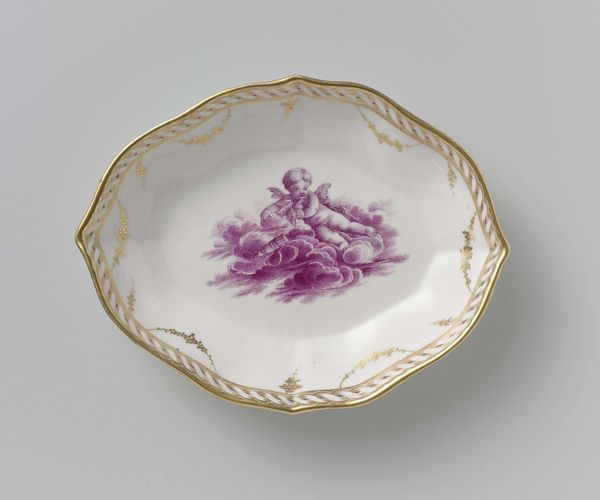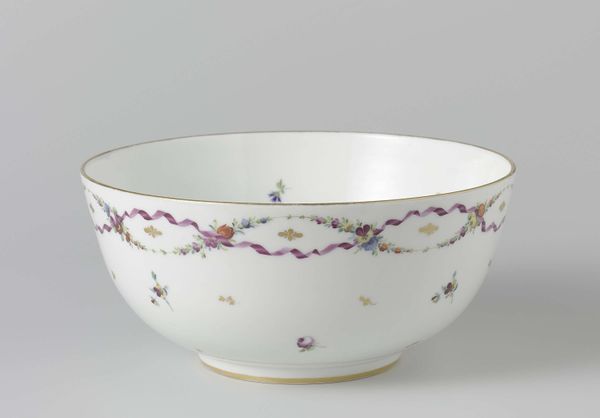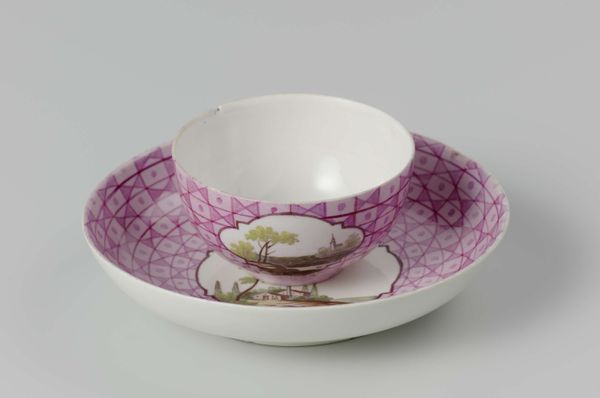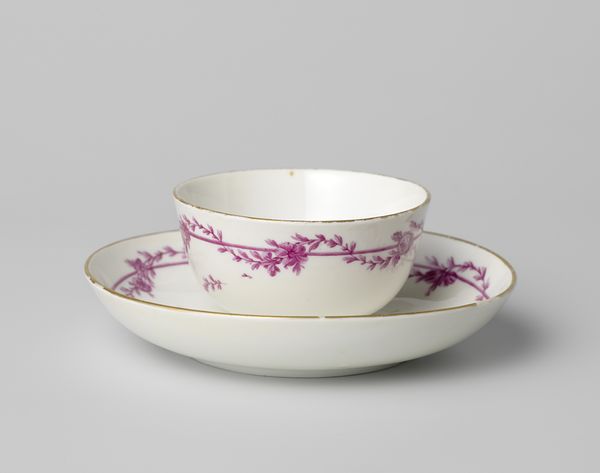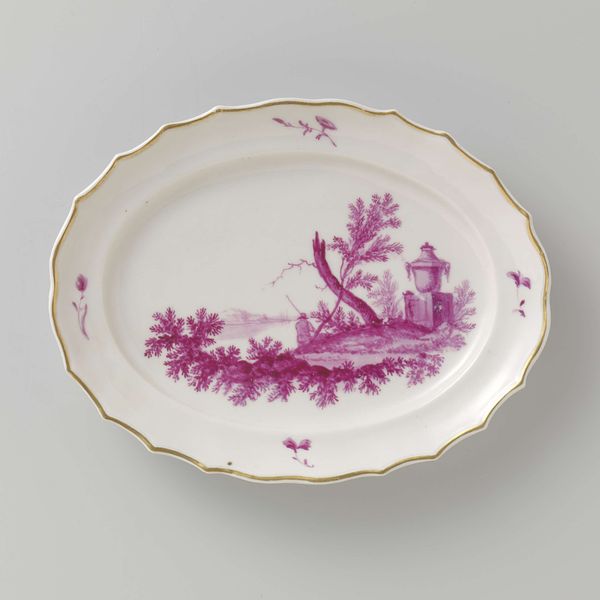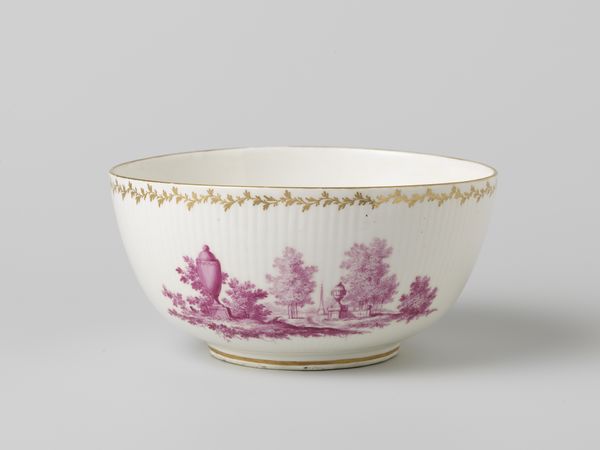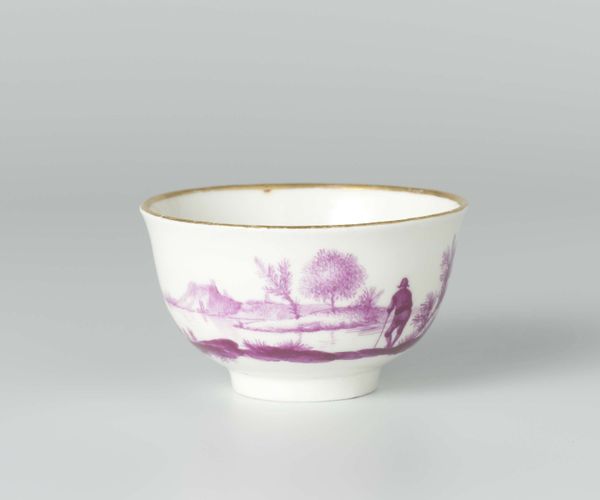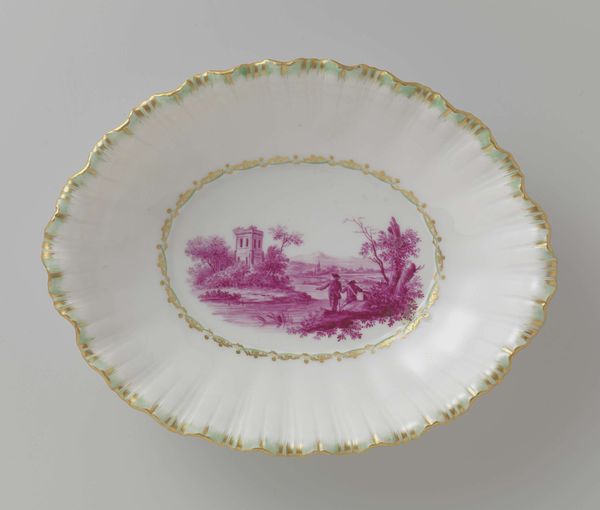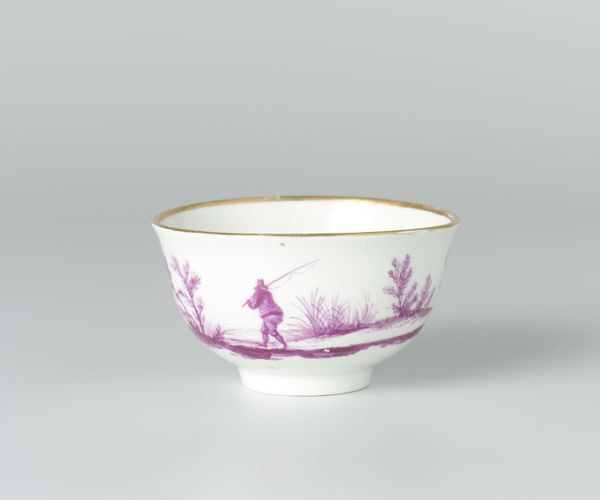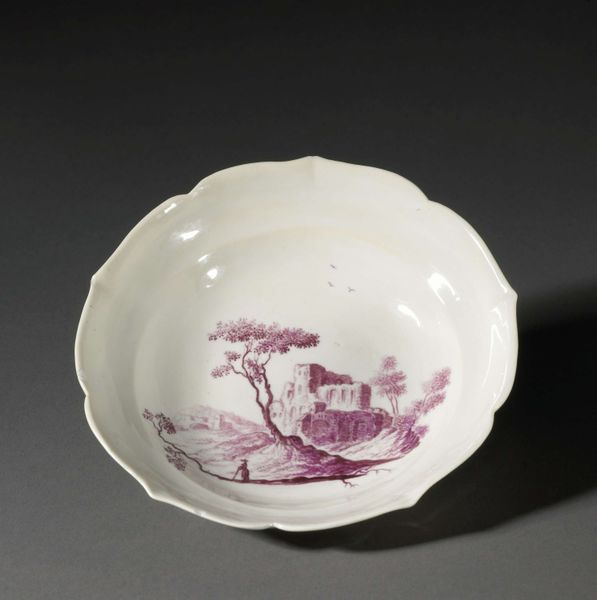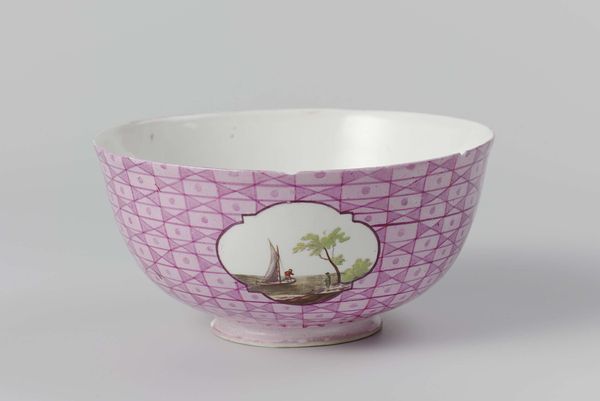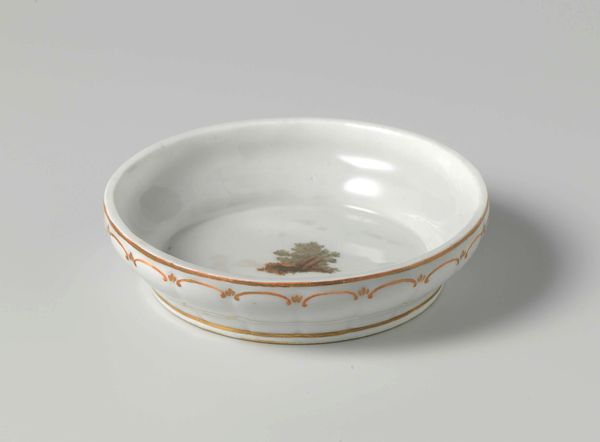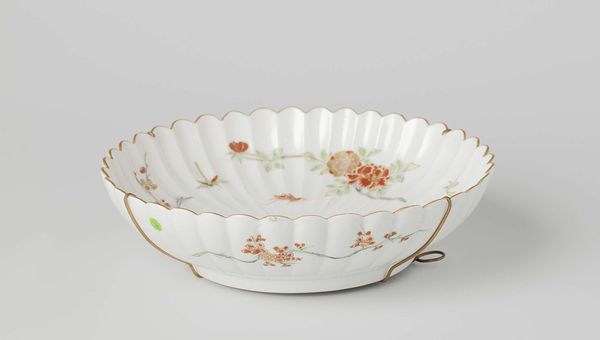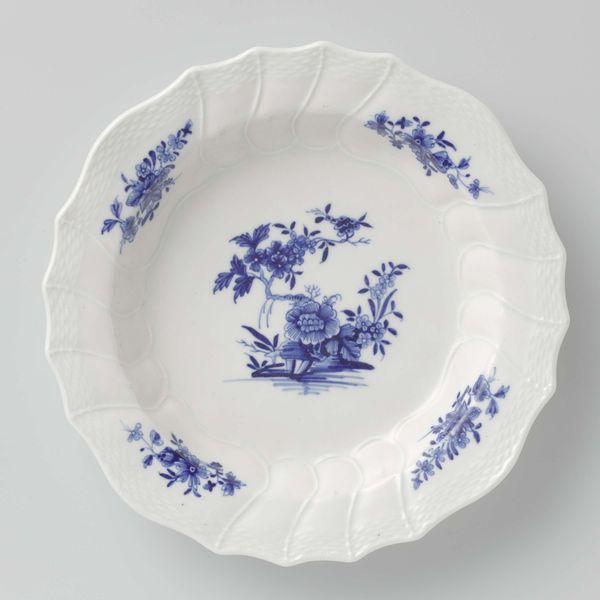
ceramic, porcelain
#
landscape
#
ceramic
#
porcelain
#
genre-painting
#
decorative-art
Dimensions: height 2.2 cm, diameter 13.8 cm
Copyright: Rijks Museum: Open Domain
Curator: Here we have "Part of a tea service," crafted around 1774-1778 by the Loosdrecht manufactory. It's porcelain with a beautifully detailed, almost dreamlike genre scene. Editor: It's enchanting. Immediately, the monochromatic purple illustration makes it feel antique, like an illustration pulled from an old fairytale. And is that a gold trim? Delightful. Curator: Yes, the scalloped edge is gilded, offering a subtle luxuriousness. The use of "camaieu" as a single-color decorative painting really heightens the formality and aesthetic purpose over functional concerns. What I find fascinating is the artist's ability to define space solely through tonal variation. Editor: It's remarkable how the subtle gradations create depth, like an infinity mirror. What's with the little hunter and his dog? Or is it a shepherd? Looks terribly lonely. Like a character in search of a purpose, stuck in porcelain limbo. Curator: Indeed, the placement of figures within a broader landscape engages themes of pastoral escape, typical of decorative arts in the late 18th century, tapping into contemporary romantic sensibilities. Editor: Right, escaping powdered wigs! So, what, would they sip tea from this? Seems a tad precious for regular biscuit dunking. Makes you think of furtive rendezvous in pleasure gardens and whispered gossip between aristocrats, doesn't it? Curator: That’s a wonderfully intuitive understanding of the context. Tea, itself newly fashionable and somewhat expensive, allowed an indulgence within elaborate, very formalized rituals of consumption that were designed to showcase social and material refinement. Editor: You're right. Now I get the picture! Even the slight imperfections—the almost watery quality of the painted scene—they just add to the antique beauty, really. Makes the stories come alive somehow. I love it. Curator: Ultimately, in looking closely at the craftsmanship and recognizing its broader artistic contexts, we can really see this ceramic work functioning as both a decorative object and a social artifact. Editor: Well, I will always cherish a cup more with this little dish close to me.
